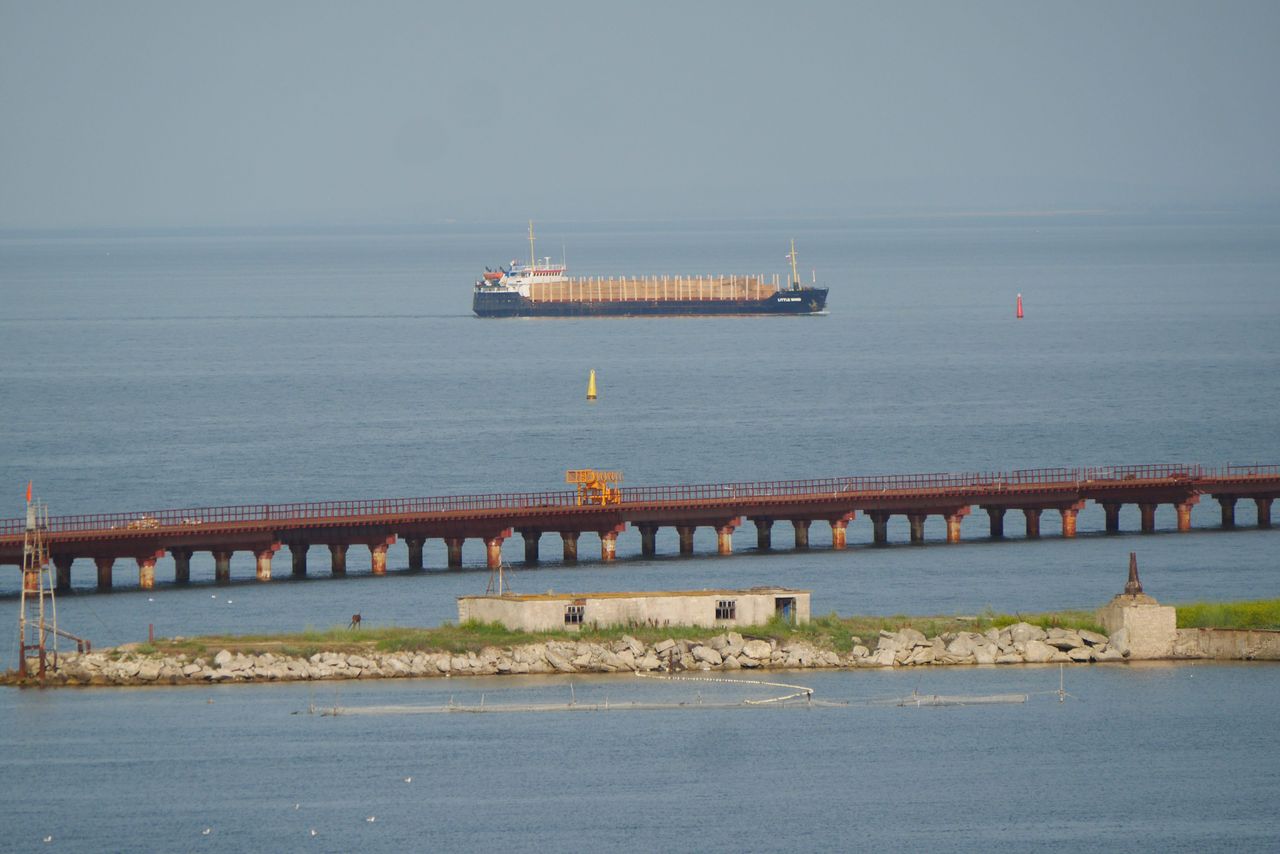
According to experts from Ukrainian monitoring group BlackSeaNews, only in February 2017 74 ships violated the sanctions and entered the Crimean ports against the Ukrainian ban. Since the annexation of the Crimea in March 2014 several hundred ships from various countries have been blacklisted by Ukraine.
Sea transportation is of great importance to the economy of the Crimea. However, since the Russian annexation, the peninsula has been rapidly transforming into an island.
Officially, only in May 2015 did the Ukrainian government exclude it from its list of ports open for foreign ships. Nonetheless, in July 2014 Ukraine closed all the ports on the peninsula for international connections. In December 2014 European companies were forbidden to conduct any tourism business with the Crimea, while all the cruise ships were banned from the Crimean ports. At the same time, Ukraine suspended all passenger connections with the Crimea (trains and buses). In September 2015 the Crimean Tatars along with representatives of volunteer battalions initiated a blockade of the Crimea, making impossible exchange of any goods with the peninsula taken over by Russia.
The only permanent external connections are continued through the port of the Kerch Harbor in the east of the Crimea, which holds regular ferry communication with the Russian port of Caucasus. A bridge is being constructed in Kerch to ensure a permanent road and rail communication with Russia. Russian authorities have informed that the road section of the bridge will be opened in December 2018.
The introduction of the sanctions significantly limited, but did not fully halt the sea connections between the Crimea and ship owners from other countries.
Ukrainian experts from BlackSeaNews have been monitoring the vessels entering and leaving the Crimean ports since March 18th, 2014. According to the data collected by them, between March 2014 and February 2017 the sanctions were violated 619 times by ships from various countries, when they entered the Crimean ports.
In total, between March 2014 and the end of February 2017 289 ships were blacklisted (some of them entered Crimean ports after the annexation multiple times). The ships hailed from Syria, Moldova, Democratic Republic of the Congo, and even Mongolia. However, majority of the vessels violating the sanctions were Russian.
The Ukrainian experts point to the fact that since January 2017 Bulgaria is the only EU country that is continuously violating the sanctions since their introduction. Bulgarian tankers regularly enter the ports on the peninsula occupied by Russia.
Another interesting example from the Ukrainian black list are Syrian ships, which are already blacklisted by the US Foreign Assets Control Office of the Treasury Department responsible for investigating suspicious financial transfers worldwide. In January the Ukrainian experts traced a Syrian vessel Laodicea in the port in Sevastopol. The ship previously belonged to the German company Beluga Shipping which handled large cargo. According to the Ukrainians, such ships were often used to transport heavy military equipment. A certain confirmation of such cargo this time as well was its route – the Syrian vessel left Sevastopol for the Syrian port Tartus, where a Russian naval base is located.
After the annexation of the Crimea the Ukrainian politicians and experts have accused Turkey of the fact that Turkish ships violate the sanctions on the sea connections with the Crimea. Indeed, according to the monitoring from February 2017, 7 out of 74 vessels that entered the Crimean ports against the ban, belonged to Turkish ship owners.
However, the situation changed in March. On March 14th, during a visit to Ankara, the Ukrainian Prime Minister Volodymyr Hroisman informed that Turkey has forbidden its vessels to enter the Crimean ports. Soon it became apparent that Turkey also banned any Crimean ships in its ports.
The suspension of connections with Turkey means that the Crimea no longer receives goods and products from Turkey. At least officially.
On Tuesday the editor-in-chief of BlackSeaNews, Andriy Klyenko, announced on Facebook that a scheme to evade the ban had been developed. Vessels from Sevastopol first enter the Kerch Gulf and report to the Caucasus port, which is on the Russian territory. Then they can legally continue to the Turkish port of Eregli where they load the cargo and go to the Crimea.























